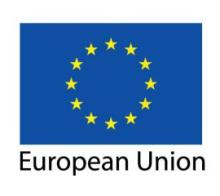Resource information
This Directive supplements Annexes I, II and III to Directive 1999/31/EC by inserting further provisions concerning the storage of mercury considered as waste and related criteria.
Implemented by: Decree implementing Directive 2011/97/EU amending Annexes I, II and III to Directive 1999/31/EC as regards specific criteria for the storage of metallic mercury considered as waste. (2013-07-29)
Implemented by: Environmental Permitting (England and Wales) (Amendment) (No. 2) Regulations 2013 (S.I. No. 766 of 2013). (2013-03-27)
Implemented by: Orden AAA/661/2013 - Modifica el Real Decreto Nº 1.481/2001, que regula la eliminación de residuos mediante depósito en vertedero. (2013-04-18)
Implemented by: Regulation on waste landfills. (2013-04-30)
Implemented by: Cabinet Regulation No. 485 of 2011 on Procedures for the Management of Certain Types of Hazardous Waste (2014-03-04)
Amends: Council Directive 1999/31/EC on the landfill of waste. (1999-04-26)



